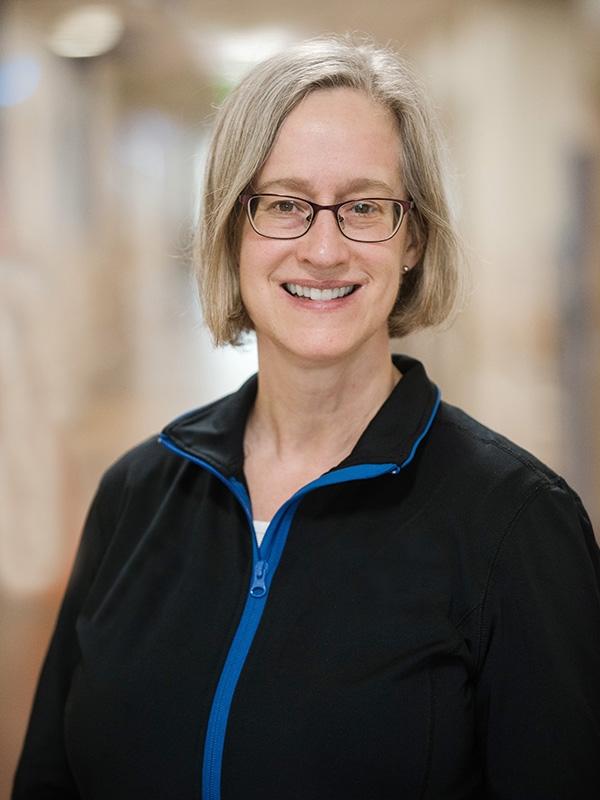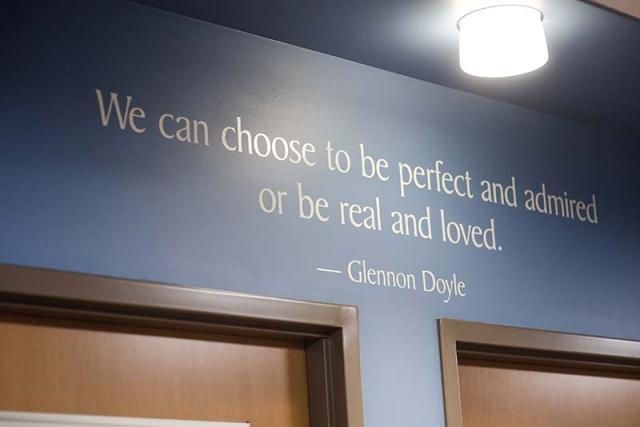
Support for Body, Mind and Spirit at ACUTE
For many patients, faith, religion and spirituality play a significant role in their lives, particularly when faced with the hardship, stress and uncertainty brought upon by serious illness.
Whether in the context of organized religion or non-religious personal spiritual practice, religious and spiritual support can be an essential source of hope, comfort and strength in a dark time.

What is spiritual care?
Spirituality, most broadly defined, is the way one experiences, expresses, and/or seeks meaning and purpose. These beliefs may influence how patients interpret their health and how they seek meaning and significance in, and approach recovery from, serious illness.
When requested, spiritual care services may help provide support and guidance, whether in the context of organized religion or non-religious personal spiritual practice.
For the subset of patients who are facing life-threatening medical complications from an eating disorder and who desire to discuss or address their spiritual needs in the context of their treatment, ACUTE offers spiritual care services alongside its world-class medical care and behavioral support. In fact, the ACUTE unit engages a dedicated chaplain with specific experience in patients with severe eating disorders and malnutrition. Spiritual care services are completely optional, and only provided at the patient's request.
What does ACUTE’s chaplain do?
ACUTE’s dedicated chaplain works alongside medical and behavioral providers to meet patients’ spiritual and religious needs. In general, they seek to answer this question: “How can I incorporate your spiritual beliefs/practices to best support you during this challenging time?” They may support patients through prayer, meditation, music, poetry, or scripture reading.
Engaging spiritual care services in an assessment of religious and spiritual needs is another way the ACUTE treatment team strives to deliver compassionate and comprehensive patient-centered care. Our chaplain is a valued, engaged treatment team member, whose goal is to bring patients hope and comfort alongside the process of delivering life-saving medical care for severe eating disorders.
Cultural Support
ACUTE’s unit is small, private and specialized; we can be agile in meeting the unique treatment and recovery needs of any patient. This includes any cultural accommodations that may be necessary, including robust language and translation services, privacy concerns and other individualized support to help patients set the foundation for sustainable, values-based recovery. As an example, ACUTE’s skilled dietitians will often consult with our chaplain to identify religious themes or rituals that may help or hinder a patient’s recovery.
It is fascinating to support spiritual healing in patients with severe eating disorders. Being on this unit brings everything together my experience in theology, behavioral health, psychology and family systems as a hospital-based chaplain. ACUTE understands the importance of individualized care, meeting patients where they are at, and respecting all spiritual and religious backgrounds in treatment and recovery. ACUTE’s patients are very sick; while some can’t engage in conversation due to their starved brains, they can benefit from supported silence and the comfort of prayer. Some patients have wounds from life, others have wounds from organized religion. We go gently; I hear their story, hear their grief, hear their hope. I ask each patient, “What is most helpful to you now?” In general, our patients yearn for empathetic listening, comfort, and gentle guidance to help find meaning and hope despite staggering grief, brokenness and loss. Each patient determines how we use our time; some want to really dig in. Almost everyone wants prayer—time and time again, even amid serious medical crisis, they calm during prayer, and there are tears of healing and peace. I’m so proud, grateful and humbled to be a part of incredible work that’s being done here at ACUTE.

